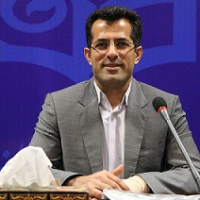Design, development and validation of inquiry-based science education with a technology approach in education
The change in teaching and learning approaches to science through inquiry-based methods and the application of technology can improve student motivation. Therefore, the aim of this study was to identify the components of science education using the inquiry-based method with a technology-oriented approach in education.
Qualitative research method was conducted based on grounded theory, using snowball sampling. Data reached theoretical saturation after 18 interviews with Farhangian University professors. Data were collected using semi-structured interviews and analyzed using the thematic analysis method of Depoy and Gitlin. The quantitative research method was descriptive using survey study; the researcher created a questionnaire as a research tool, and the statistical population consisted of primary school teachers (N=113), selected via simple random sampling.
Qualitative data were analyzed through interviews during the open, central, and selective coding, revealing 13 elements across 4 dimensions (logical thinking, lifelong independent learning, technology-based approaches, development of content, and pedagogical knowledge) and 9 components (development of skills, promotion of scientific thinking, gradual acquisition of knowledge, acquisition of a wide range of abilities, development of virtual laboratory infrastructures, development and equipping of real laboratories, role of professors in reflective teacher training, foundation for learning new teaching methods, and architecture of teacher training curriculum). Quantitative data analysis utilized structural equation modeling and one-sample t-tests.
The construct validity and reliability were confirmed through factor loadings, Cronbach’s alpha, composite reliability, and convergent validity, and overall model fit via the GOF criteria. Therefore, the adoption of this model is recommended to improve the quality of education and learning in teaching science.
-
Developing and validating an appropriate model for measuring productivity: with the approach of digital Transformation in organizational processes of Education Department
*
Journal of Technology and Scholarship in Education, -
Relationship Between Academic Attitude and Motivation Effective Teaching of Sciences with the Mediation of Scientific Project Model Design between Bachelor Student Teachers of Primary Education Program at Farhangian University
Nooshin Gashmardi*,
Educational Research, Winter and Spring 2024 -
Designing a Professional Development Model of Student Teachers of Farhangian University Based on STEM Model of Learning
, Fatemeh Asadollahi *
Journal of Teacher Professional Development,



